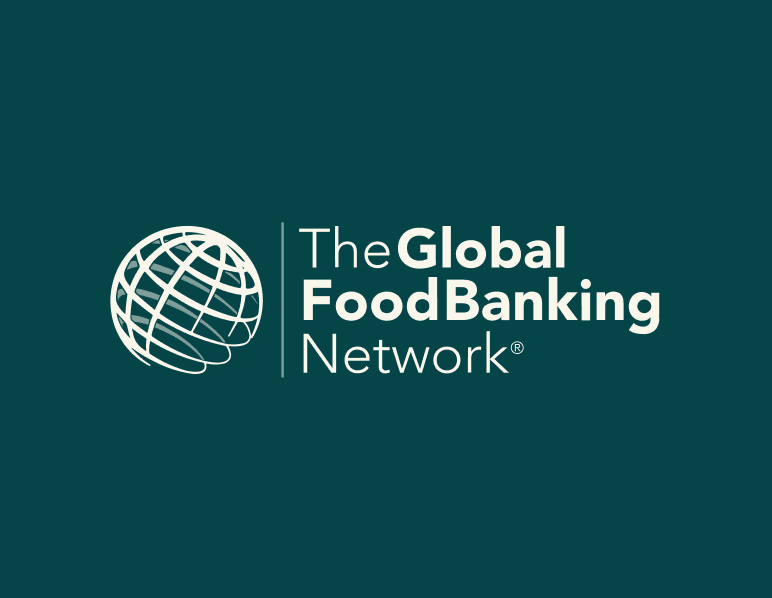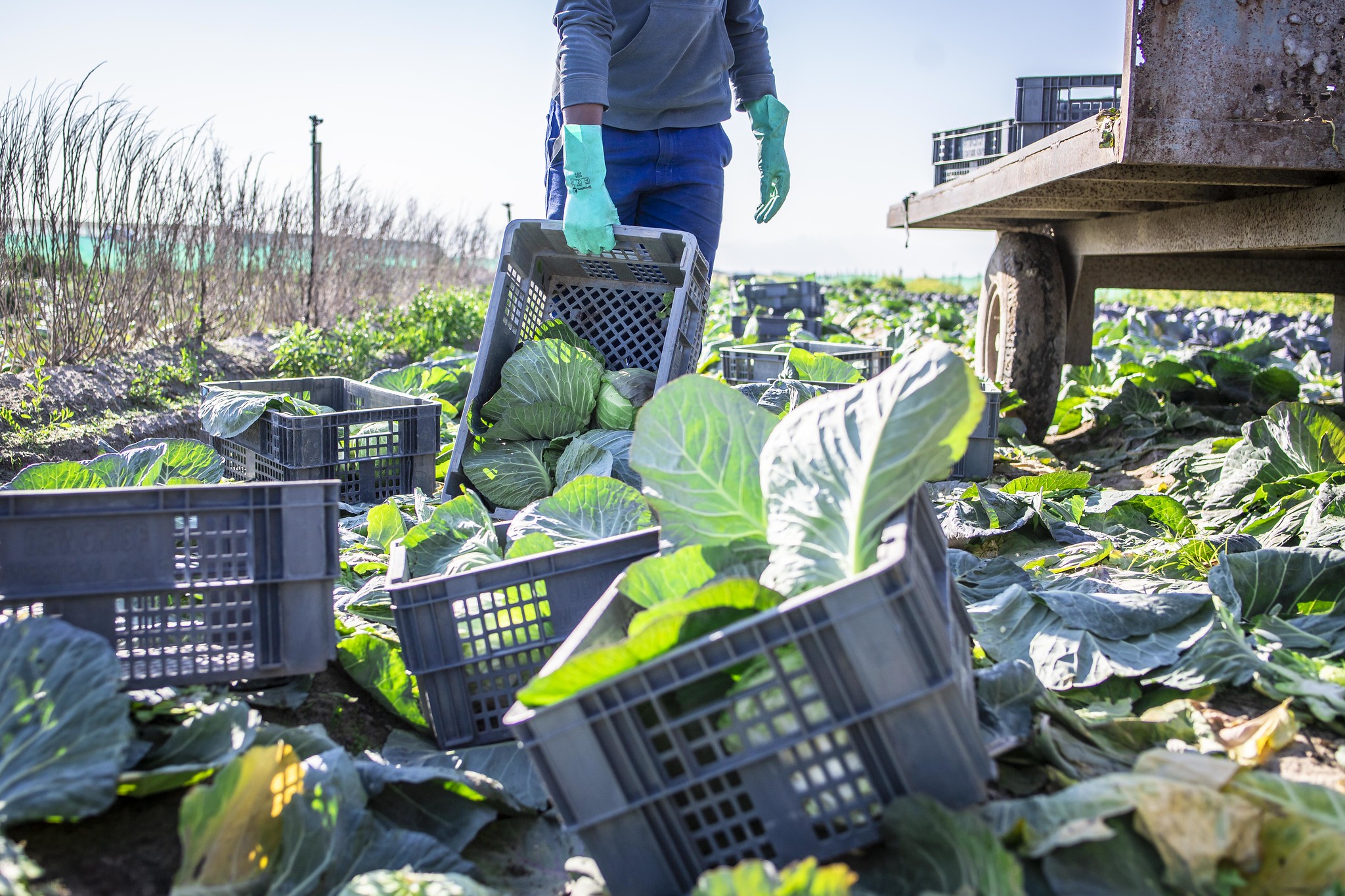August 28, CHICAGO – A new methodology released by The Global FoodBanking Network demonstrates that collecting and redistributing surplus food can help avoid methane emissions, one of the most potent greenhouse gases. The methodology will help food banks and other food systems actors to better understand how redistribution of surplus food can benefit people and the climate.
Analysis of six community-led food banks in Mexico and Ecuador that participated in a pilot of the new methodology found that these organizations prevented a total of 816 metric tons of methane over a year, or an average of 136 MT each, by redistributing food that would otherwise have gone to landfill. This is estimated to be equivalent to each food bank avoiding the annual emissions of 906 gasoline-powered cars, or storing the same carbon as almost 63,000 tree seedlings grown for a decade, based on the Environmental Protection Agency’s Greenhouse Gas Equivalencies Calculator.
Food banks around the world will be able to use the new methodology to better measure how to reduce methane from food collection and distribution.
Food systems are estimated to be responsible for around a third of the world’s greenhouse gas emissions, half of which is caused by food loss and waste. Food taken to landfills mostly generates methane, which traps more than 80 times more heat than carbon dioxide over the first 20 years, making it a more potent gas in the short-term. Recognizing the importance of immediate methane mitigation for curbing rising temperatures, more than 150 countries joined the Global Methane Pledge at the COP26 climate talks to reduce methane emissions by 30 percent from 2020 levels by 2030.
To measure the volume of methane avoided by food banks, The Global FoodBanking Network, in partnership with the Global Methane Hub and with technical support from the Carbon Trust, developed the first methodology for methane that uses Microsoft’s Sustainability Manager.
To measure the volume of methane avoided by food banks, The Global FoodBanking Network, in partnership with the Global Methane Hub and with technical support from the Carbon Trust, developed the first methodology for methane that uses Microsoft’s Sustainability Manager.
The FRAME (Food Recovery to Avoid Methane Emissions) Methodology was piloted in Mexico and Ecuador, and calculated emissions savings as well as 100 other indicators to demonstrate the environmental and social benefits of food banks. Emissions from waste have more than doubled in Ecuador since 1990, accounting for about 13 percent of the country’s greenhouse gas emissions today, while around a third of food is lost or wasted in Mexico.
“The new FRAME Methodology provides strong and credible evidence that food recovery and redistribution reduce greenhouse gas emissions while also improving food security,” said Lisa Moon, president and CEO of The Global FoodBanking Network, which represents food banks in more than 50 countries.
“Food banks and other food recovery organizations provide an instant, cost-effective and straightforward way to reduce emissions while food production systems evolve to be more sustainable.”
The tool was developed to allow food banks, food recovery organizations, private sector companies, scientific experts, and others working in the food loss and waste sector to be able to accurately measure and manage emissions from food recovery and redistribution. It builds on earlier approaches for measuring emissions by collecting additional data points across the entire food recovery and redistribution chain.
The avoided emissions calculated are estimates based on the best available data. The impact is based on data provided by The Global FoodBanking Network and may be affected by a variety of factors. Where data was not available this has been supplemented by secondary sources.
The methodology will also enable food banking organizations in more than 80 countries to demonstrate their contributions to reducing food waste, mitigating greenhouse gas emissions, and supporting national climate plans, known as Nationally Determined Contributions (NDCs).
“This robust new tool for measuring the methane emissions avoided through food recovery and redistribution helps bring forward the climate benefits of the noble task of food donations. It will help countries deliver on the UN’s Sustainable Development Goals (SDGs), including commitments made as part of the Global Methane Pledge,” said Marcelo Mena, CEO, Global Methane Hub.
“Policies such as methane roadmaps, organic waste prevention legislation and incentives for food donation should all form part of national climate strategies to leverage the potential of food banks to bring down methane emissions and food insecurity.”
The Global Methane Hub will continue to support the next phase of the methodology, which will include trainings on data collection at food banks in sub-Saharan Africa and Southeast Asia, legal guidelines for policymakers on how to support food recovery and redistribution, and parallel guidelines for the private sector on how to support food recovery and redistribution.
The new methodology and supporting materials can be found online.
ENDS
For more information or interview requests:
Donna Bowater
Marchmont Communications
donna@marchmontcomms.com
+61 434 635 099
James Fredrick
The Global FoodBanking Network
jfredrick@foodbanking.org
+1 872 2131245
The Global FoodBanking Network
Food banking offers a solution to both chronic hunger and the climate crisis. GFN works with partners in over 50 countries to recover and redirect food to those who need it. In 2023, our Network provided food to more than 40 million people, reducing food waste and creating healthy, resilient communities. We help the food system function as it should: nourishing people and the planet together. Learn more at foodbanking.org.
The Global Methane Hub
The Global Methane Hub is a first-of-its-kind philanthropic alliance to support methane emissions reduction around the world. A super pollutant, methane is responsible for more than 45% of recent global warming. To reduce methane pollution for a chance to save our climate within our lifetime, Global Methane Hub organizes and convenes governments, industry leaders, scientists, and nonprofit organizations across the globe to minimize methane pollution through technology and common-sense public policies and regulations. Since 2021, the Global Methane Hub has catalyzed over $10 billion in methane reducing project investments by convening funders focused on addressing climate change, raised $500 million in pooled funds from more than 20 of the largest climate philanthropies to accelerate methane mitigation worldwide, and strategically regranted $200 million to over 100 grantees conducting methane reduction work in 152 countries. To learn more about Global Methane Hub, visit globalmethanehub.org.
The Carbon Trust
The Carbon Trust is a global climate consultancy driven by the mission to accelerate the move to a decarbonised future. We have been climate pioneers for over 20 years, partnering with businesses, governments and financial institutions to drive positive climate action. From strategic planning and target setting to activation and communication – we turn ambition into impact. To date, our 400 experts have helped set 200+ science-based targets and guided 3,000+ organisations and cities across five continents on their route to Net Zero.

